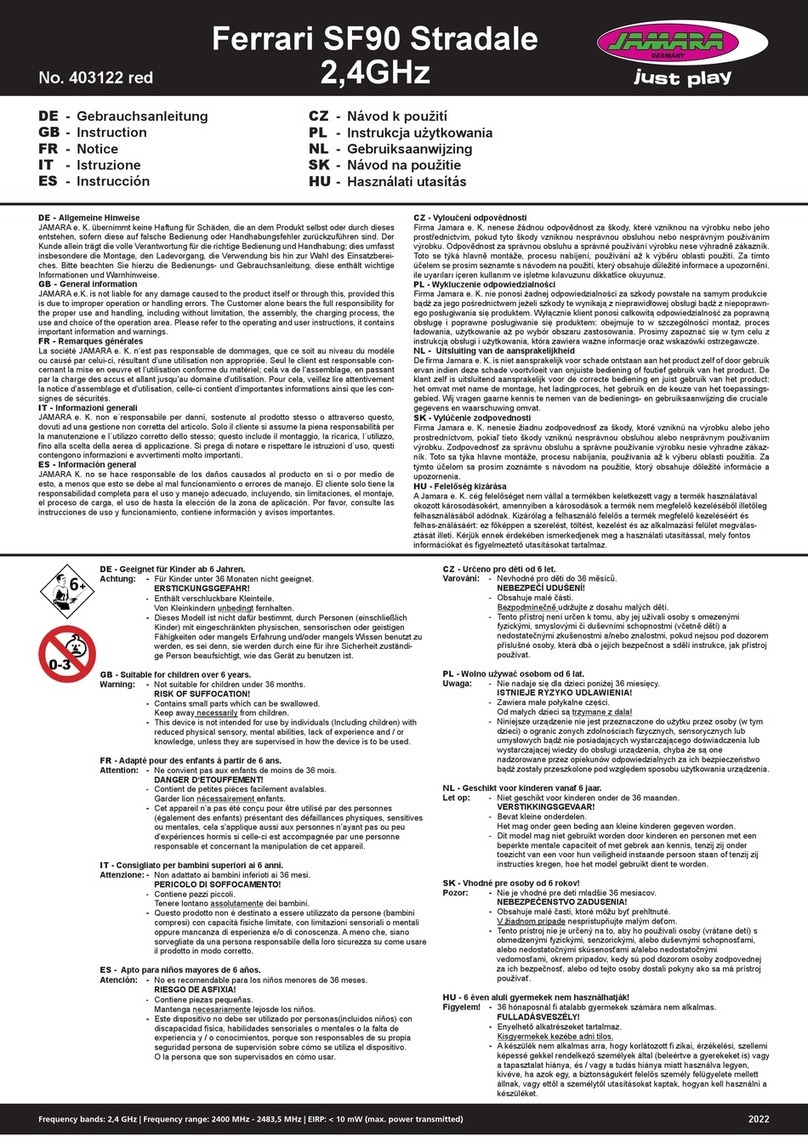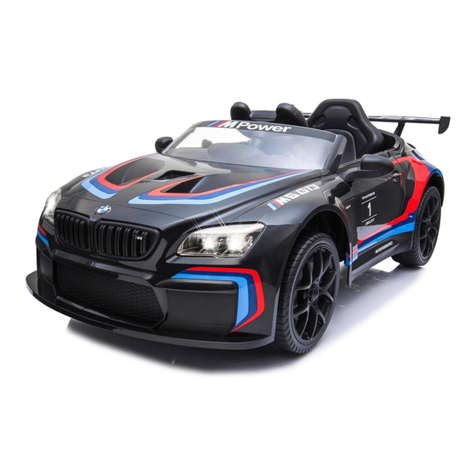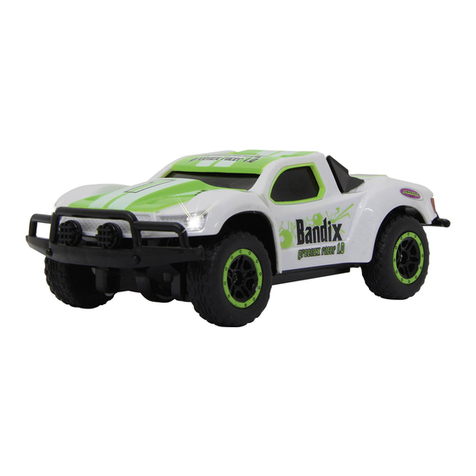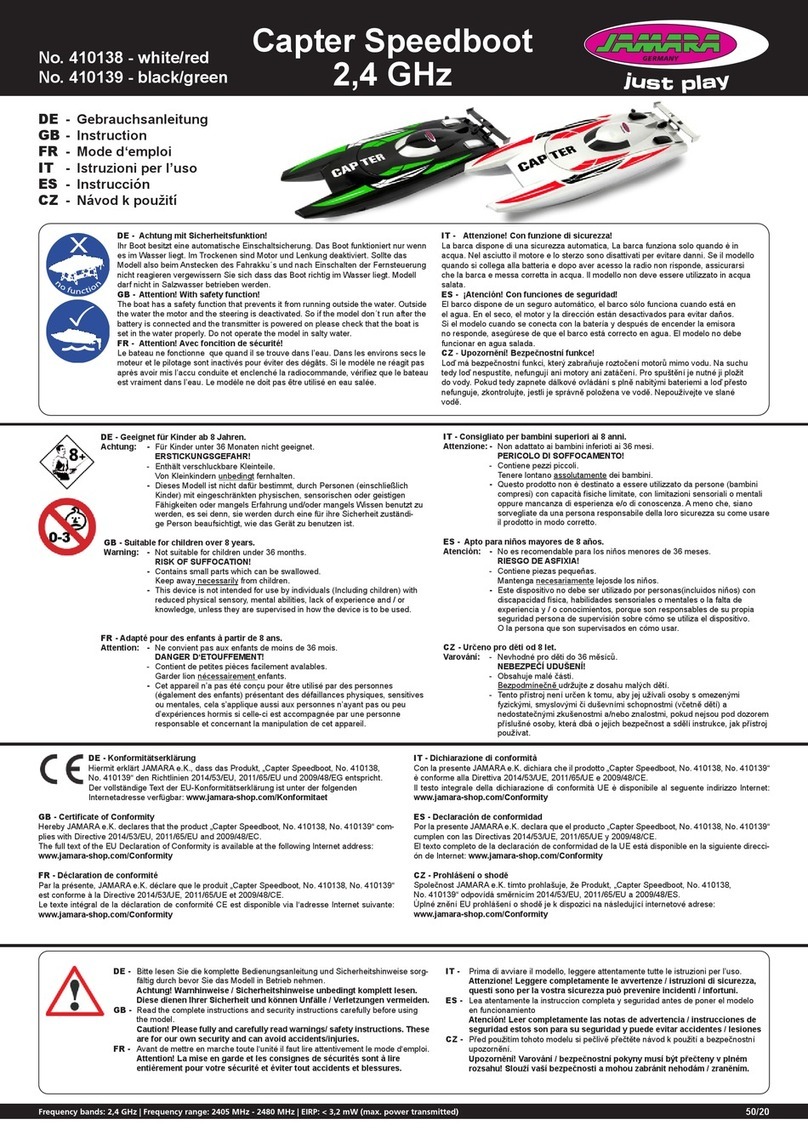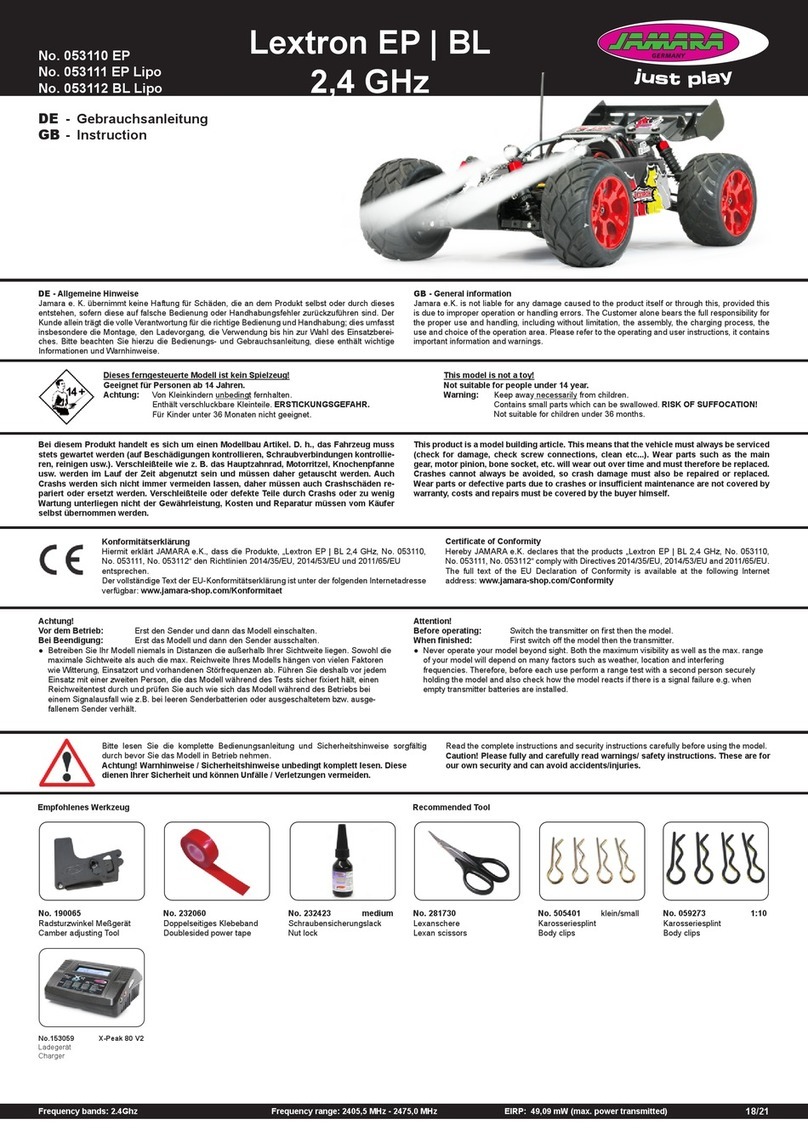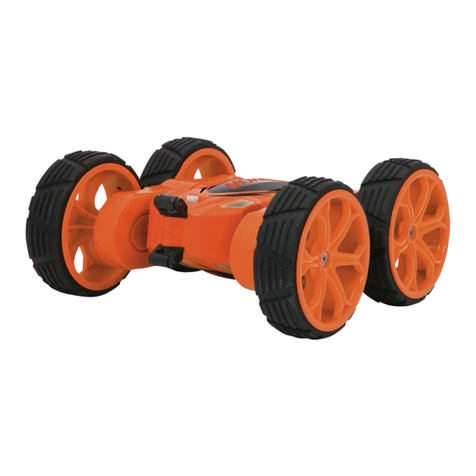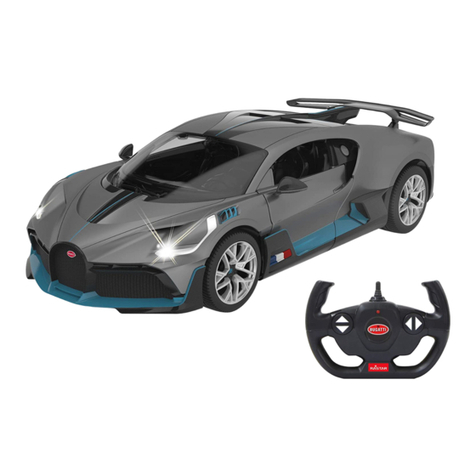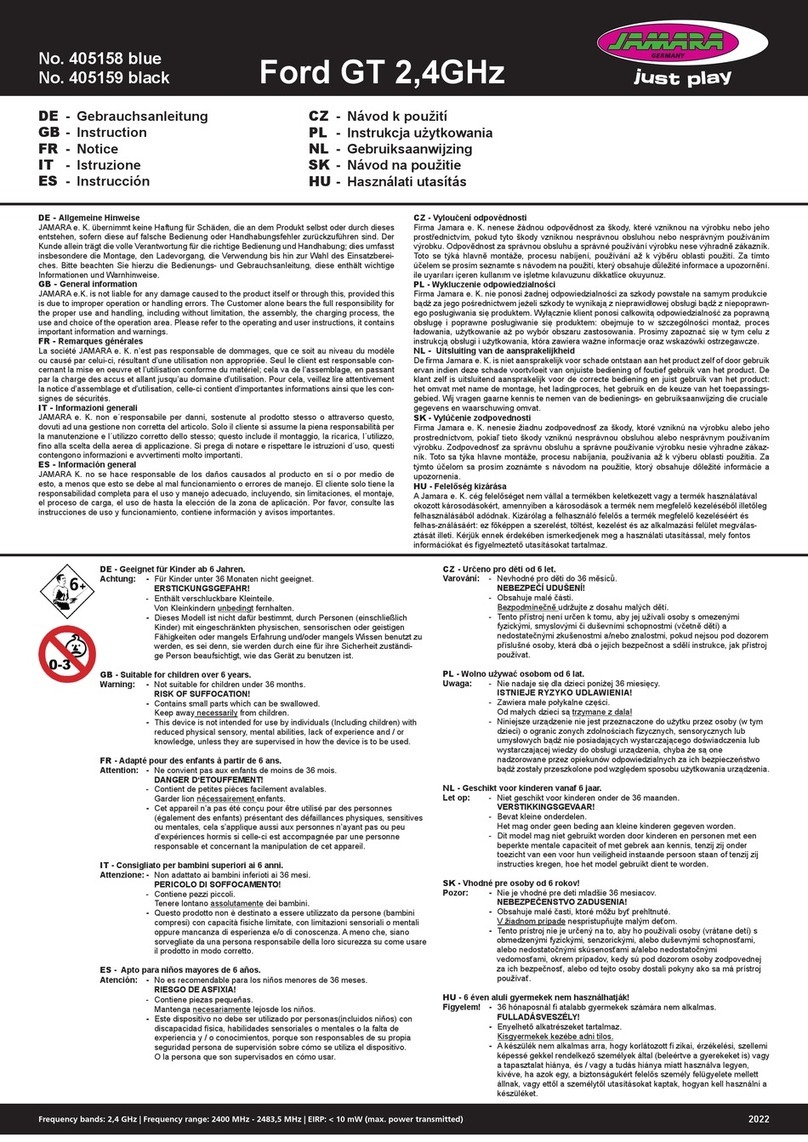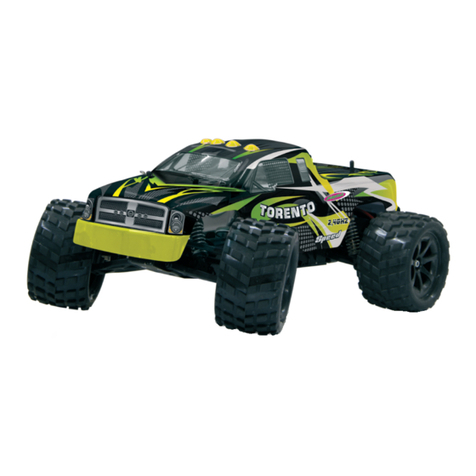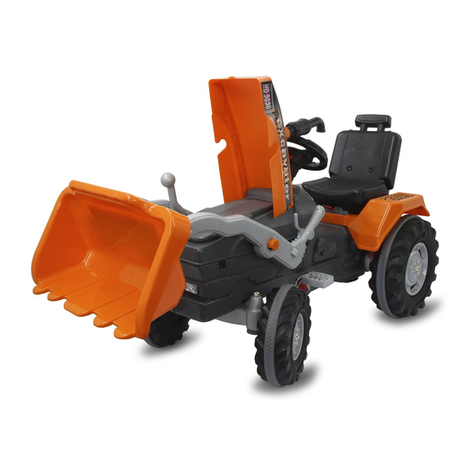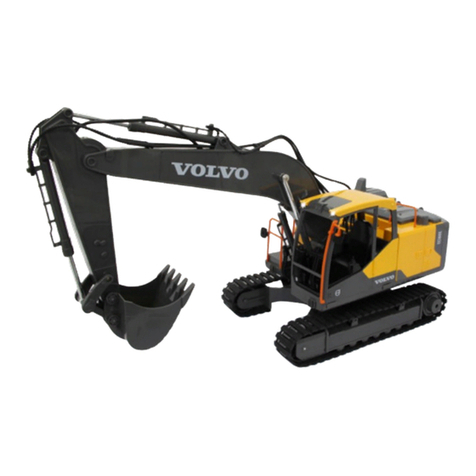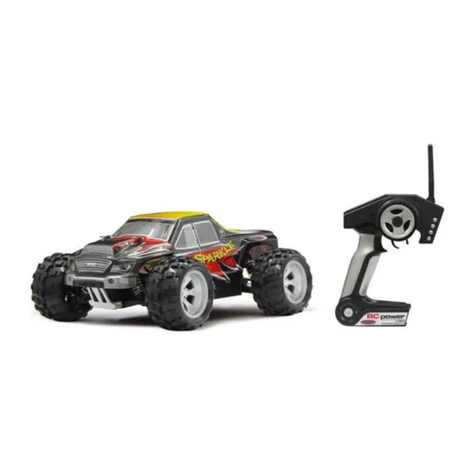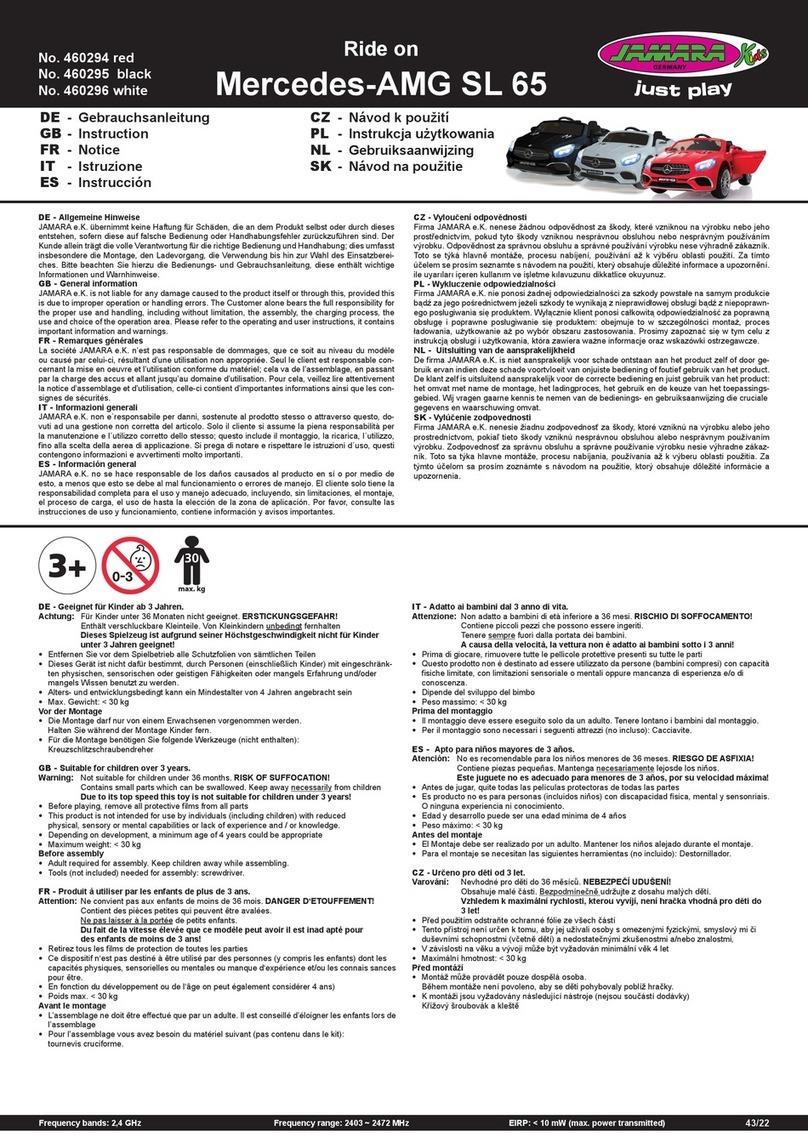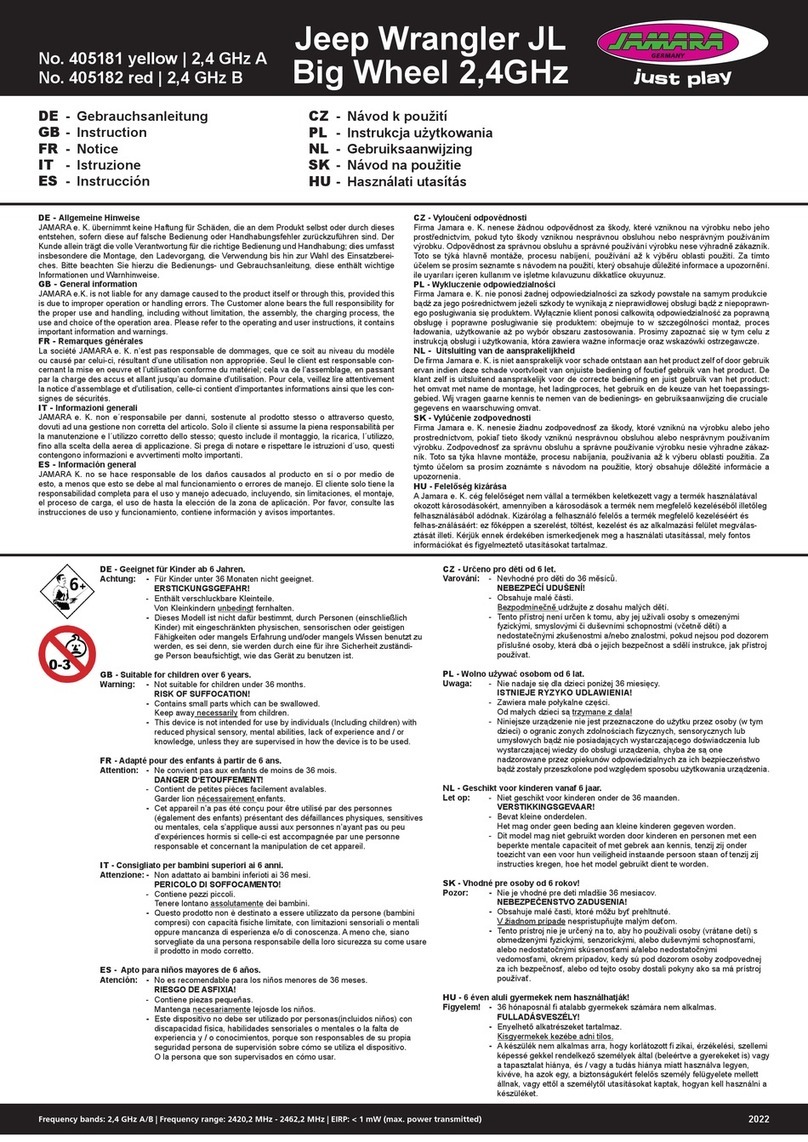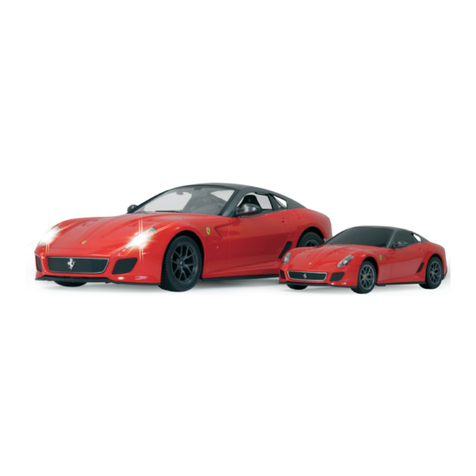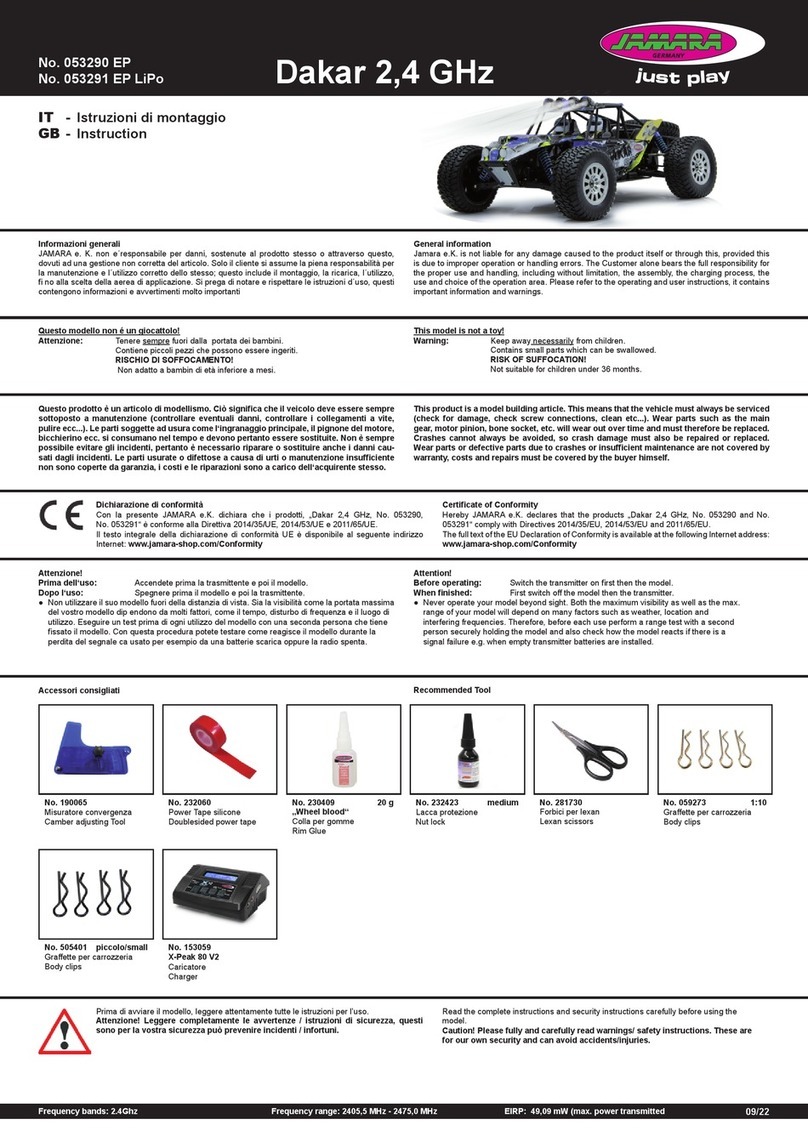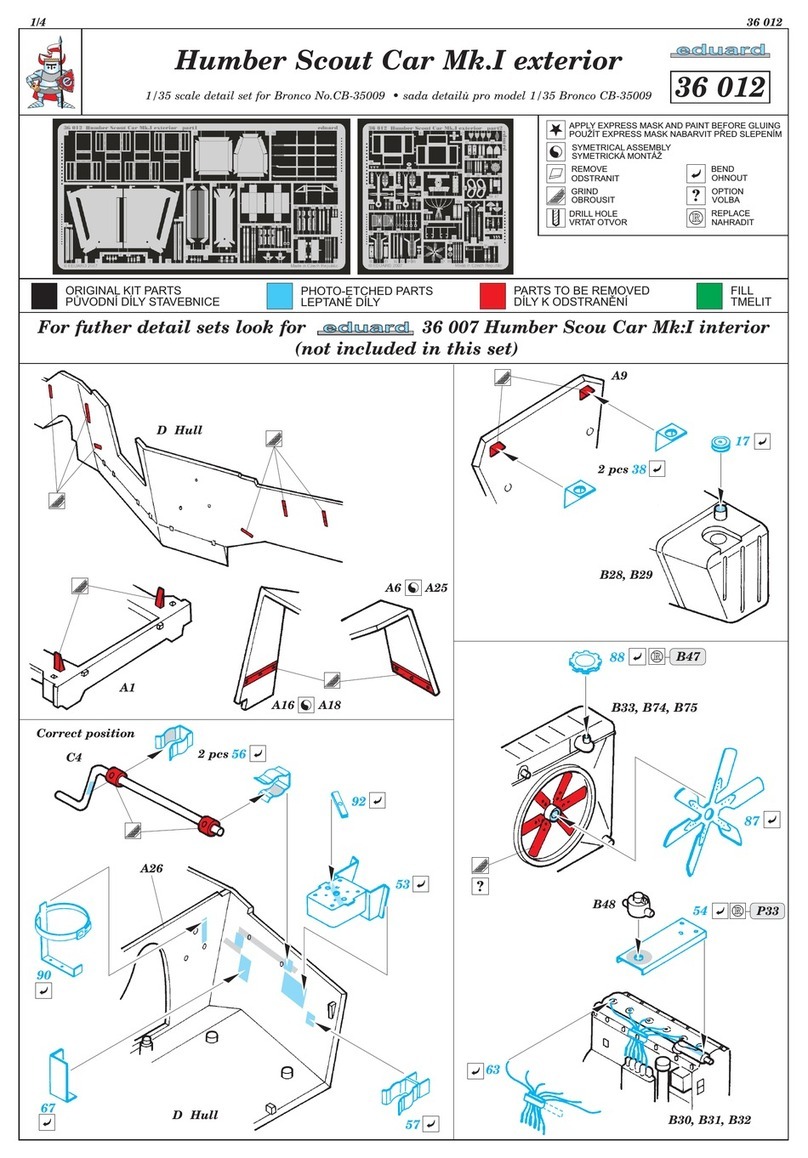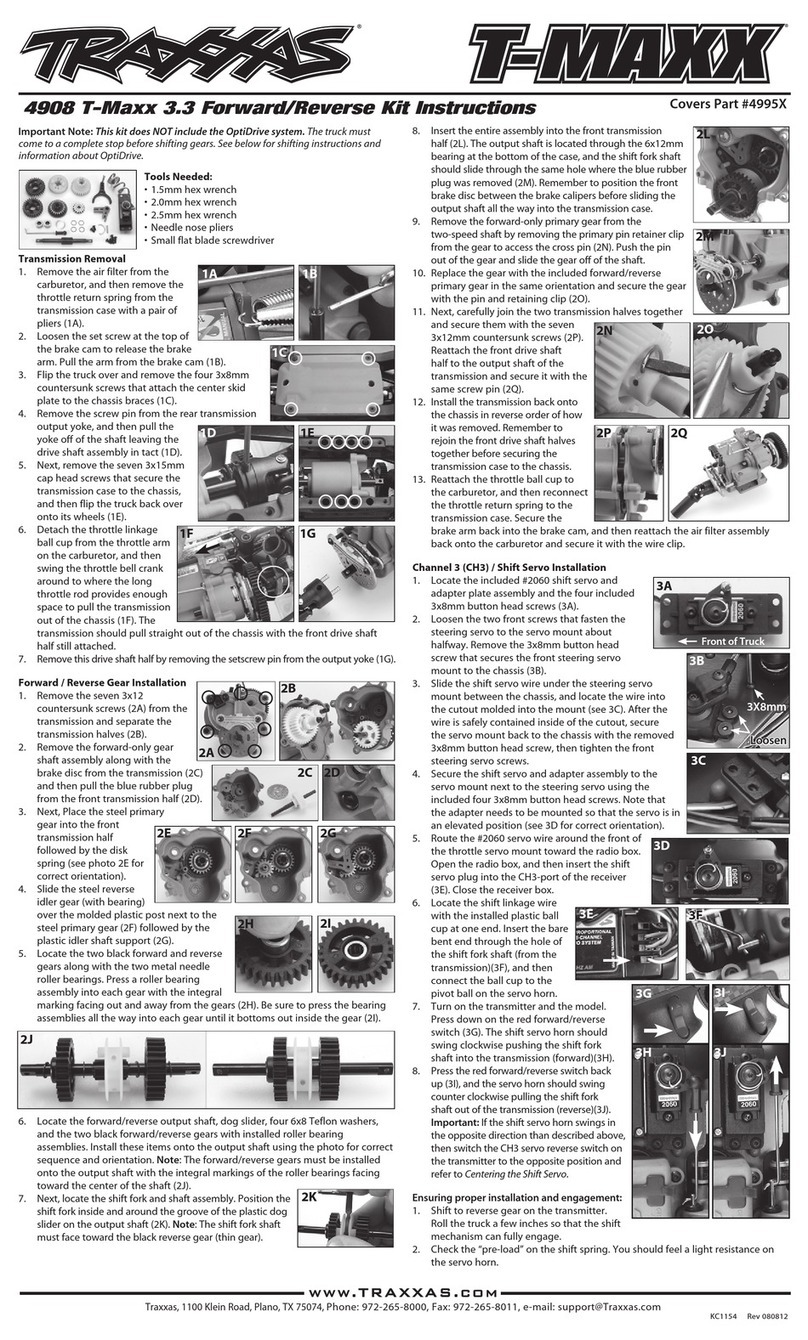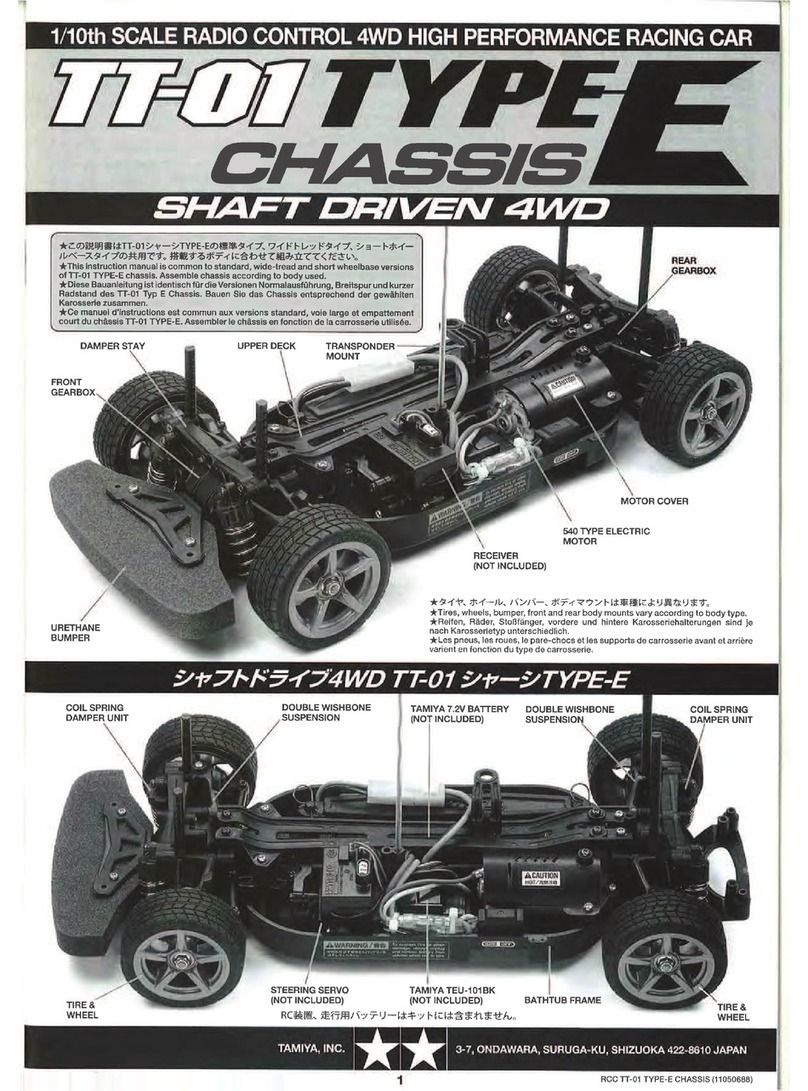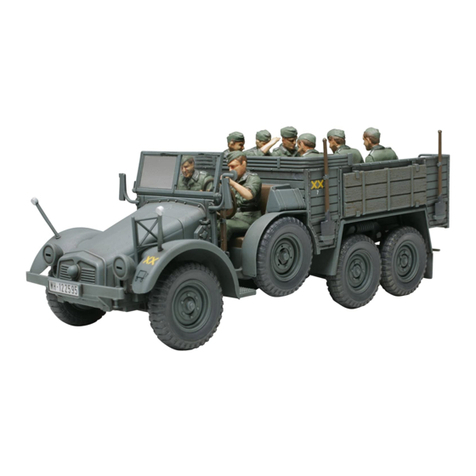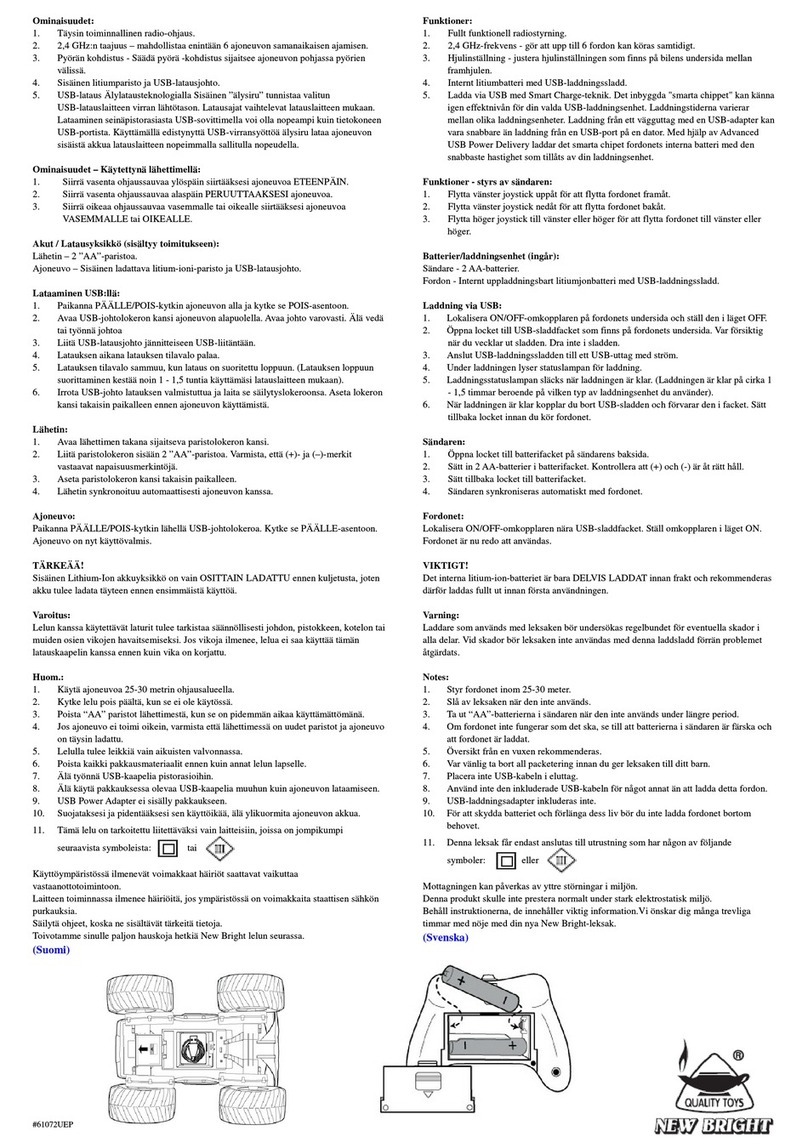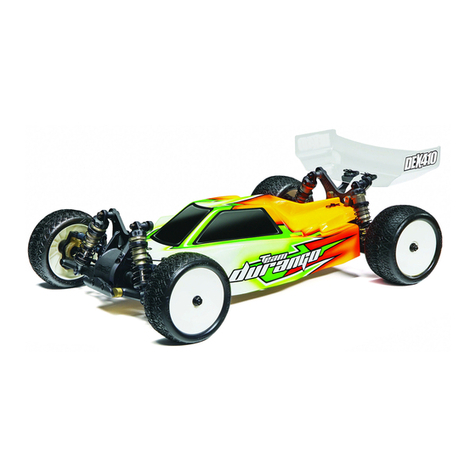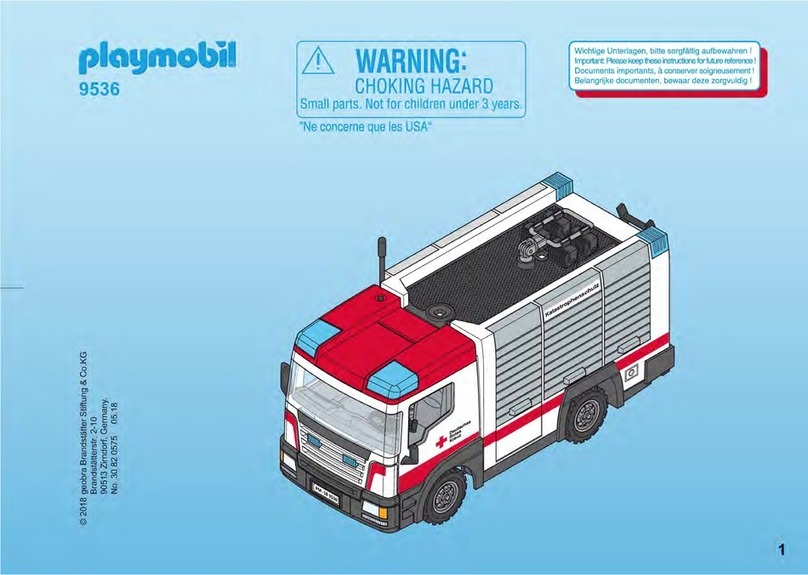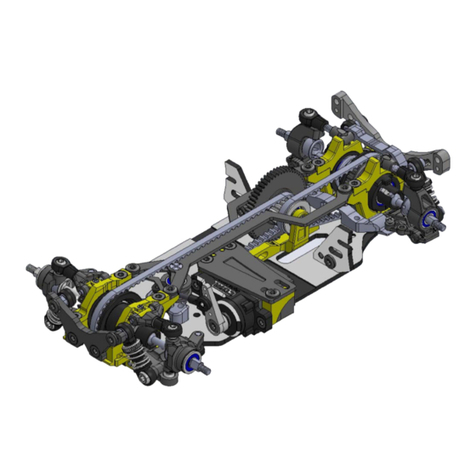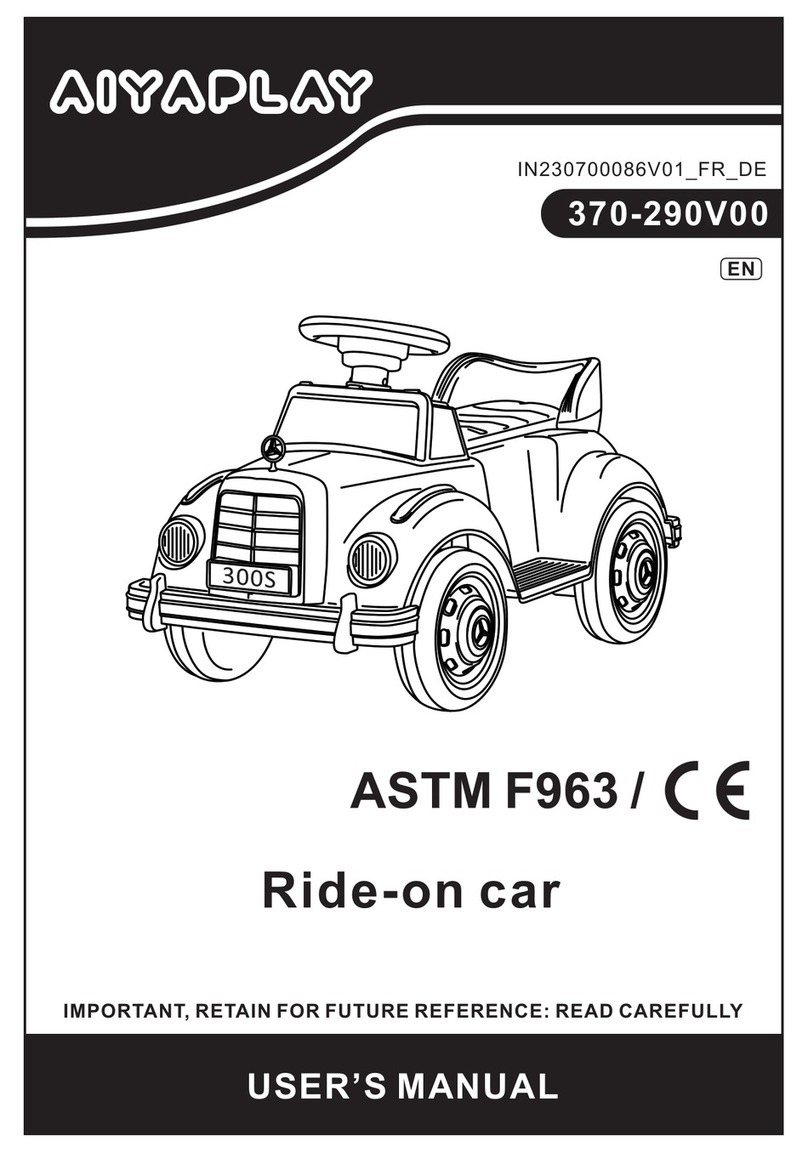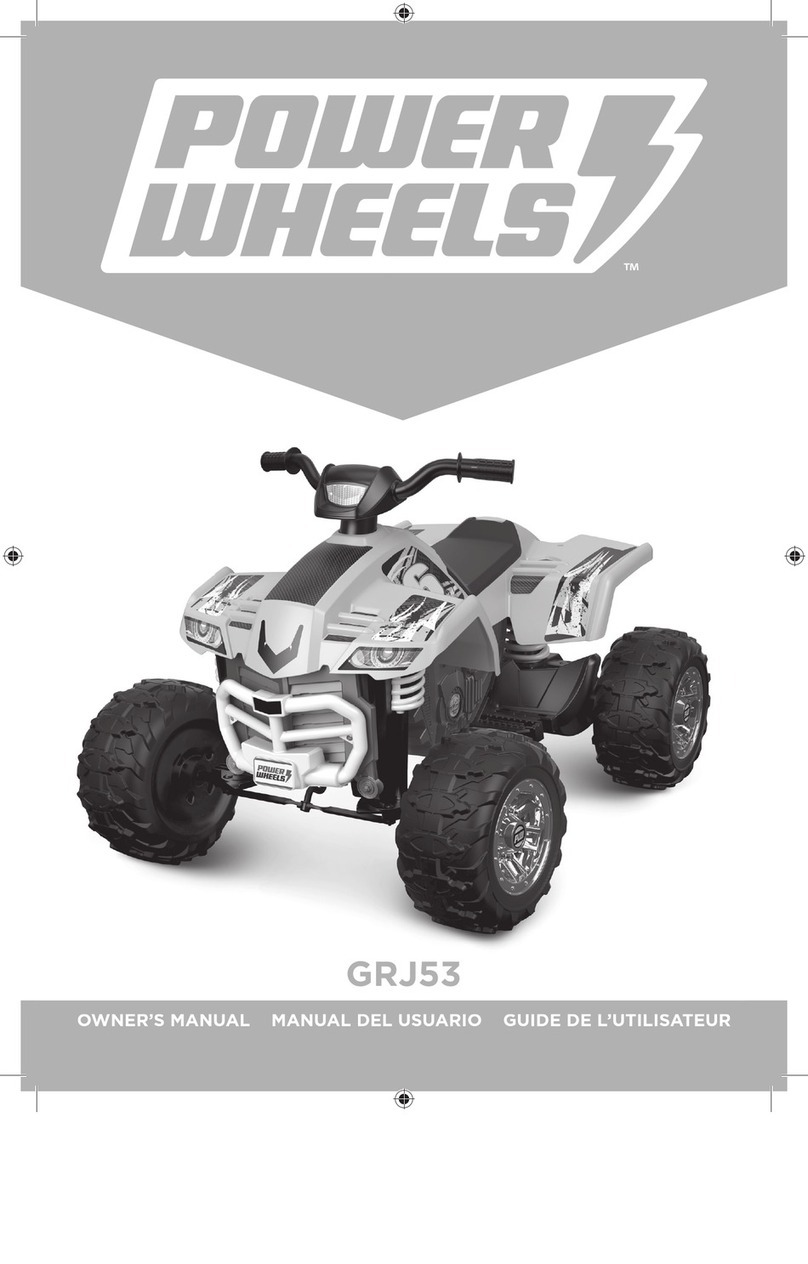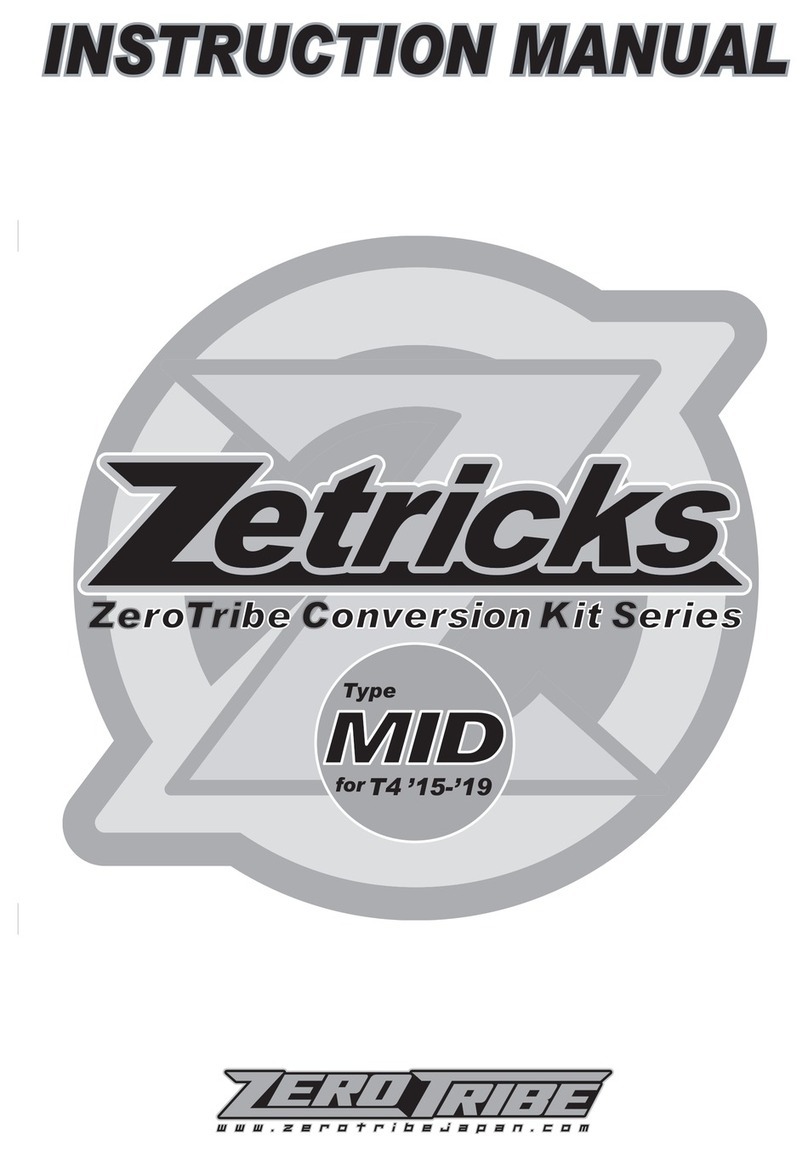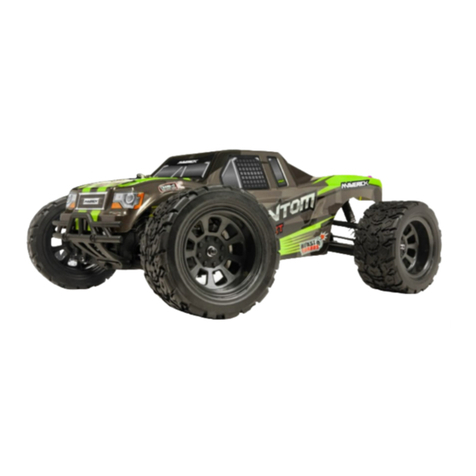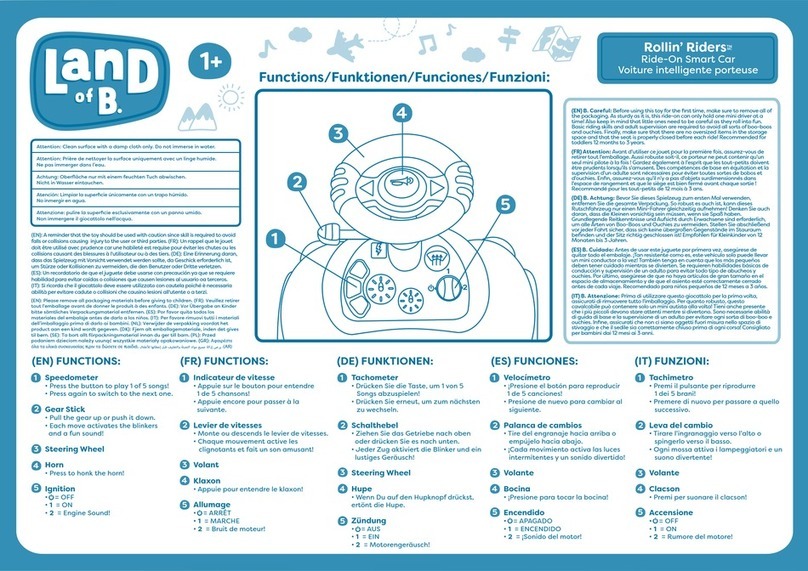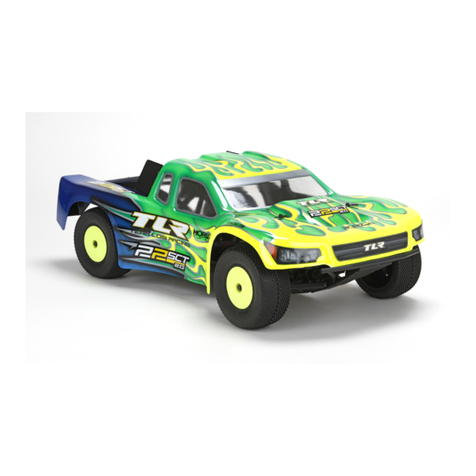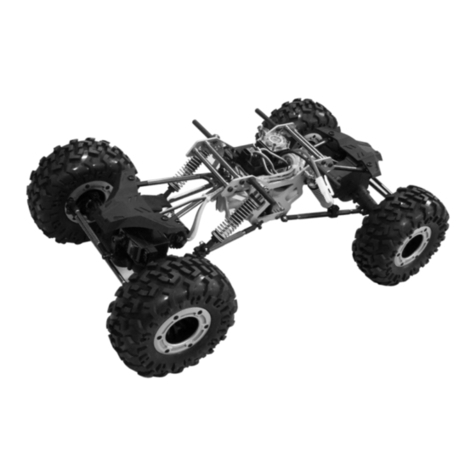
2
Batteria / Battery
Regolatore
ESC
ON/OFF
FR - Attrezzi consigliati GB - Recommended Tool
No. 15 3058
X-Peak 80 BAL Pult
Caricatore
Charger
No. 15 3060
X-Peak 50 BAL
Caricatore
Charger
Cavo di riduzione
Charging adapter
Caricatore/
Charger
Caricatore/Charger
Batteria/Battery
Batteria/Battery
Vers. 053366
Vers. 053367
Primi passi
Assicurarsi che tutte le parti indicati sono incluse nella confezi-
one di scatola. Trasmittente, modello, caricabatterie e batterie.
Per primo bisogna caricare la batteria. Collegare il caricabatterie
ad una presa 230V. Collegare il caricabatterie alla batteria del
veicolo. In certi casi utilizzare il cavo adattatore fornito per col-
legarela batteria con il caricatore. Il tempo medio di carica della
batteria è di circa 6 - 8 ore.
Inserire 8 batterie AA oppure 8 batterie ricaricabili AA nella tras-
mittente. In caso del utilizzo di batterie ricaricabile, è necessario
caricare questi con un caricatore separato.
Leggere il capitolo sulla trasmittente.
Accendere la trasmittente e assicurarsi che i trim siano in posizi-
one neutrale. Avete acquistato un modello RTR. Vale a dire, che
il modello è preimpostato per la maggior parte per l‘uso imme-
diato. Tuttavia, è essenziale prima e dopo ogni utilizzo, di con-
trollare il funzionamento della parte meccanica ed elettronica.
Si consiglia di controllare anche tutte le parti in movimento del
modello. Mettete la batteria nel vano della batteria, a bordo del
veicolo. Fare attenzione che la batteria sia correttamente ssata
con i 2 clip in dotazione e che la batteria non abbia un gioco
eccessivo nel vano appropriato. Ora collegare la batteria con il
regolatore di velocità. Tenere il modello in aria per il caso che il
motore si metta a girare a tutto gas. Ora accendere il regolatore
di velocità tramite l`interruttore ON / OFF. Posizionare il modello
sul pavimento e vericarne il corretto funzionamento testando lo
sterzo (sinistra/destra) ed il gas (avanti/indietro) Se le ruote non
puntano dritti in avanti, anche se il volante della trasmettente è
in posizione neutrale, è possibile ottenere aiuto con il trim della
trasmittente nella posizione corretta.
Trim L/R = Sterzo
Trim V/R = Avanti / Indietro
Se le ruote girano in avanti o indietro, anche se nessun comando
è stato dato attraverso il trasmettitore, poi anche l‘acceleratore
deve essere tagliato sul trasmettitore.
Vi incoraggio ad attivare
il ricevitore integrato in unità fail-safe. Al momento della con-
segna è spento.
Se le ruote girano in avanti o indietro, senza toccare lo stick del
gas, è necessario impostare il trim del gas nella giusta posizione.
Consigliamo di attivare il Fail Safe, integrato nel regolatore di ve-
locità. Il Fail Safe è disattivato in stato di consegna del prodotto.
Per attivare il Fail Safe, leggere attentamente il capitolo Fail
Safe. Attivazione Fail Safe: Accertarsi che lo stick del gas
sia in posizione neutrale. Premere il tasto Fail Safe sulla ri-
cevente nche lampeggia il LED. Dopo il lampeggiamento
del LED, lasciare il pulsante.
Ora si può fare la prima unità di prova. Se questa è la tua prima
auto rc, si consiglia di guidare su una pista piccola per familia-
rizzare con il controllo del veicolo e i comandi del trasmettitore.
Getting Started
Make sure that all parts from the box content are included.
Transmitter, Car, Charger, battery pack.
The battery pack has to be charged before use. Plug the charger
into a 230V outlet. Connect the charger to the battery. If the plug
of the charger and battery do not match, then you will nd a
connection lead in your box. The average charging time of the
empty battery is about 6 - 8 hours.
Place 8 pieces of AA batteries into the transmitter. If rechargeba-
le, please also make sure these are fully charged.
Read the chapter for usage of the transmitter and its controls
carefully.
Turn the radio off and make sure all the trim buttons on the trans-
mitter are in neutral position. You have purchased a RTR model,
which means it should be ready for immediate use after charging
all batteries. You need to check the car, electronics and all plas-
tic parts after each use to make sure no parts are damaged.
Also all the moving parts must be checked for their clearance,
bolts and screws that they are tight. Now put the battery into the
battery holder in the vehicle. Make sure that the battery holder
is secured properly with the 2 included clips for the battery hol-
der. Now connect the battery to the speed control in the model.
Keep the car in the air in case that the motor turns at full power.
Switch the speed control on the On / Off switch. Set the model
on the ground and test it for proper functioning. Steering right/
left, throttle/ brake, forward and backward. If the wheels do not
point straight forward even though the steering wheel on the
transmitter is in neutral, you can adjust it with the trim button on
the transmitter.
Trim L/R = steering
Trim V/R = forward/backward
Should the wheels rotate forward or backward, even though no
command was given through the transmitter, then also the thrott-
le needs to be trimmed on the transmitter.
We encourage you now to activate your receiver‘s built-in Fail-
safe unit. On delivery it is turned off. Leave the throttle lever
in neutral position (see chapter Fail Safe). Press the fail-safe
button on the receiver until it ashes and let go to activate.
Check this principle in an electric vehicle only in the neutral
position of the throttle, because otherwise the model goes
into the previously programmed throttle position in a loss of
the transmitter signal.
Now you can make the rst test drive. If this is your rst rc car, we
recommend to drive it on a small test track to familiarise yourself
with the control of the vehicle and the controls of the transmitter.
Importante!
Utilizzando batterie LiPo fare in modo che l‘arresto sottoten-
sione è attivato. In caso contrario, la batteria LiPo possono
essere danneggiati da scariche profonde.
Important!
By using LiPo batteries take care that the undervoltage shut-
down is activated. Otherwise, your LiPo battery can be da-
maged by deep discharge.
ON/OFF
L/R V/R
Trim
50 5080
50 5081
07 9996
50 5079
50 5080
50 5081
07 9996
50 5079
Attenzione!
Il veicolo è dotato di una Pivot sospensione anteriore. Questa
ha una serie di vantaggi. E ‚molto robusta e la manutenzione
e´molto facile. Questo è impostato in fabbrica in modo che la
carreggiata non permette agli cardani di saltare fuori. Come con
qualsiasi modello, dopo l´inizio dell’uso si rallentano di qualche
millimetro sia la sospensione sia i bulloni. Questo gioco minimo,
po’ abbastare sotto massimo sforzo per fare saltare fuori i car-
dani. Pertanto è necessario per assicurarsi prima di ogni uso
che tutte le viti, dadi, giochi ecc., sono ssate correttamente. La
vita esterna in plastica 505080 serva per ssare il fuso a snodo
sulla vite a sfera. Questo non deve essere serrata troppo forte.
In caso contrario, lo sterzo non si muove liberamente e la guida
può essere inuenzata negativamente.
Attention!
Your vehicle has a pivot front suspension. This has a number of
advantages. It is very robust and easy to maintain. The set-up of
the car has been done so the drive shaft will not pop out. As with
any model, screws and bolts can losen during break-in of the
car. This can result in tolerance of the drive shaft. The drive shaft
can then pop out if high pressure is applied. The inner ball screw
(item No.: 505081) will enable you to adjust the tolerance resul-
ting in ne adjustments of the track width. For best results when
setting up the pivot ball for the rst time, please always adjust
the upper and lower pivot in the same way. Fasten as far as the
pivot can still be pulled up and down easyly but not as far that it
will pop out if you give full steering angle. The outer plastic socket
screw (item No.: 505080) is only used for securing of the steering
knuckle. This should not be too tight, otherwise the steering is
not smooth and the handling can be adversely affected.
